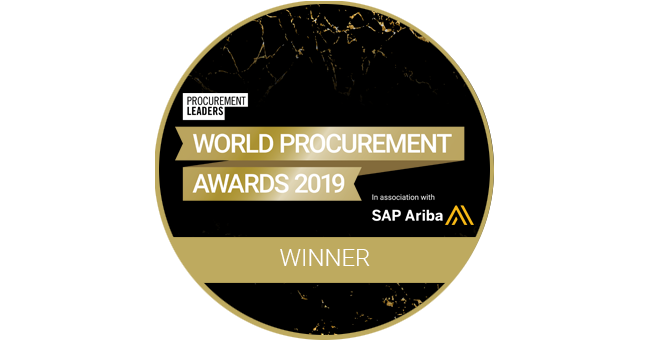We manage a supply base of over 25,000 suppliers whose capabilities and capacities enable us to deliver our mission.
Through competitive selection processes, we aim to work with the most sustainable suppliers so we can deliver our best for children and the families we serve as well as their futures.
We strive to be the customer of choice for our suppliers by operating with transparency and fairness, and by using technology to streamline our buying and payment transactions. We endeavour to provide clear requirements, fair lead-time expectations and to pay on-time.
In turn, we ask that our suppliers offer value for money, supplying the right quality, from the first time, and every time. We ask our suppliers to invest in and innovate for us and our sector, to build inclusive and diverse workforces and to prioritise social, economic and environmental sustainability practices.
We strive to meet the highest ethical and professional standards in our interactions with suppliers and in compliance with all legal and ethical requirements. Furthermore, Save the Children expects and is legally obliged to ensure that suppliers adopt similar codes of conduct in their business dealings and conform to our Supplier Sustainability Policy. Standards particularly important to us are:
Our new supplier sustainability policy contains all of our compliance requirements.. By consolidating our existing Policies, supplementing them with Environmental and Social requirements, we can create a single, simple and impactful Policy for you.
What is it?
How will it work?
Key Principles
There are 6 Supplier Standards that contain our Key Principles. These are as follows and are summarised in the Supplier Sustainability Policy:
Which suppliers must agree to. Then there are:
Which suppliers should agree to.
Suppliers are required, as a minimum, to comply with compulsory standards in this Policy (“must” provisions) and to set clear goals and work-plans to achieve the other standards (“should” provisions).
Save the Children's Procurement function endeavours to solicit ideas and innovation from its vast supply base. We recognise and appreciate the depth of capacity in our suppliers and welcome opportunities to connect your innovative products and services into our programs, advocacy work and operations.
Please contact us at procurement@savethechildren.org if you have such innovations!
Save the Children International is striving to achieve Value for Money from the financial resources and budgets that are available to spend. Value for Money means optimising the effectiveness and efficiency of our 3rd party, supplier expenditure while achieving maximum economy.
Effectiveness and efficiency in the context of our supply will vary by spend area and business need, but typically includes quality, lead times, service levels and risk management. Economy relates to the total cost or price of the goods and services.
This means sourcing “the lowest total cost product or service that meets the core business requirements and essential criteria”.
The Procurement function at Save the Children International has been in transformation.
Our vision is to become the international development sector’s leading Procurement function. To achieve this ambition, we have transformed many parts of our function and delivered against the back-drop of operating in the world’s most challenging environments, humanitarian emergencies, collapsed supply chains, protracted conflicts, fragile and failing state.
In 2019, Save the Children was awarded a globally renowned World Procurement Award for transformation.

Email the procurement team with any questions or concerns.